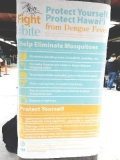AT DDW
CHICAGO (FRONTLINE MEDICAL NEWS) – Misoprostol could be a treatment option for healing intestinal bleeding that is associated with regular aspirin use, a small study showed.
Compared with placebo, it was superior in healing small bowel ulcers. A total of 12 patients who received misoprostol had complete healing at 8 weeks, compared with 4 in the placebo group (P = .017).
“Among patients with overt bleeding or anemia from small bowel lesions who receive continuous aspirin therapy, misoprostol is superior to placebo in achieving complete mucosal healing,” said lead author Francis Chan , MD, professor of gastroenterology and hepatology at the Chinese University of Hong Kong, who presented the findings at the annual Digestive Disease Week.
Millions of individuals use low-dose aspirin daily to lower their risk of stroke and cardiovascular events, but they face a risk of gastrointestinal bleeding. In fact, Dr. Chan pointed out, continuous aspirin use has been associated with a threefold risk of a lower GI bleed.
“But to date, there is no effective pharmacological treatment for small bowel ulcers that are associated with use of low-dose aspirin,” he said.
Misoprostol is a synthetic prostaglandin E1 analog that is indicated for reducing the risk of NSAID–induced gastric ulcers in individuals who are at high risk of complications from gastric ulcers. In their study, Dr. Chan and his colleagues assessed the efficacy of misoprostol for healing small bowel ulcers in patients with GI bleeding who were using continuous aspirin therapy.
The primary endpoint was complete mucosal healing in 8 weeks, and secondary endpoints included changes in the number of GI erosions.
The double-blind, randomized, placebo-controlled trial included 35 patients assigned to misoprostol and 37 to placebo. All patients were on regular aspirin (at least 160 mg/day) for established cardiothrombotic diseases and had either overt bleeding of the small bowel or anemia. They had a score of 3 (more than four erosions) or 4 (large erosion or ulcer) that was confirmed by capsule endoscopy.
Those randomized to the active therapy arm received 200 mg misoprostol four times daily, and all patients continued aspirin 80 mg/day for the duration of the trial. During the study period, concomitant NSAIDs, proton pump inhibitors, sucralfate, rebamipide, antibiotics, corticosteroids, or iron supplement was prohibited.
A follow-up capsule endoscopy was performed at 8 weeks to assess mucosal healing, and all images were evaluated by a blinded panel.
The intention-to-treat population included all patients who took at least one dose of the study drug and returned for follow-up capsule endoscopy (n = 72).
In this population, 33% of patients in the misoprostol group and 10.5% on placebo had complete mucosal healing at 8 weeks.
“For the secondary endpoint of changes in small bowel erosions, there was a significant difference between the misoprostol group and placebo group with a P value of .025,” said Dr. Chan.
The study was supported by a competitive grant from the Research Grant Council of Hong Kong. Dr. Chan reported relationships with AstraZeneca, Eisai, Pfizer, and Takeda.





